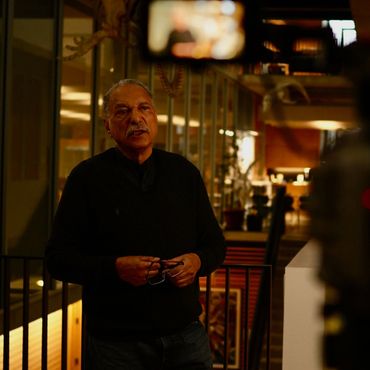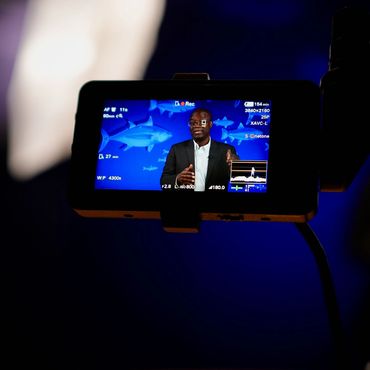Awards for Change Makers

About the ISSUE

Never before have there been so few fish in the sea.
After 20 years of negotiating, the World Trade Organization has finally drafted a historic agreement to protect our oceans.
It's the world's first legally-binding international sustainability treaty.
But if countries don't sign, the deal will be meaningless.
The race is now on to convince 109 countries to sign the agreement, or watch our last, best hope for a sustainable future slip away.
Change makers: Trailer
Featuring marine activist Ted Danson and award-winning marine scientists Daniel Pauly and Rashid Sumaila, Change Makers gets to the heart of the issue of sustainability to reveal a genuine pathway to success.
The film examines the WTO fishing agreement as our best and perhaps only shot for turning the tide of environmental destruction, and asks of us all:
Are we ready to be the change makers for a better world?
The issue: Fishing subsidies
Why should I care about Fishing Subsidies? It sounds boring!
Imagine you have two friends, and both love fishing. Friend A has a shiny new rod, a speedy motorboat, and unlimited bait, thanks to his rich uncle who pays for everything. Friend B, on the other hand, only has an old rod and a small rowboat, and has to dig for his own worms. The odds seem pretty skewed in favor of Friend A, right?
Now, replace these friends with countries. Some countries, like Friend A, can afford to give their fishing industries lots of financial support, known as subsidies. They can provide money for better boats, cheaper fuel, or advanced fishing gear, which allows their fishermen to catch a lot more fish - often a lot more than their fair share.
The WTO Agreement on Fisheries Subsidies is a bit like a referee stepping in to level the playing field. The World Trade Organization (WTO) oversees this agreement, aiming to set rules on what kind of financial support countries can give to their fishing industries. It helps ensure that no country is at an unfair disadvantage.
Now, why is this important?
It's not just about fairness, it's also about the health of our oceans. Because when countries subsidize their fishing industries, it can lead to overfishing — catching too many fish and not leaving enough to sustain healthy populations. This can harm the entire ocean ecosystem, and also the millions of people around the world who depend on fishing for their livelihood or for food. By limiting subsidies, the WTO Agreement on Fisheries Subsidies helps to protect fish populations and the overall health of our oceans.
So, to sum it up, this agreement balances the interests of all players, while also taking care of the shared 'fishing pond' - our precious oceans.

What will be our legacy: Will we come together and choose a path to sustainability? Or will individual greed get in the way?
About the Film

The experts
Change Makers features interviews from a diverse lineup of ocean experts, fishermen, policy makers and activists:
Ted Danson (Board of Directors, Oceana)
Daniel Pauly (World's most-cited fisheries biologist)
Rashid Sumaila (World's most-cited fisheries economist)
Jennifer Jacquet (Environmental science & policy expert)
Callum Roberts (Marine conservation biologist)
Robert 'Bill' McDonald (Former fisherman)
Chanté Davis (Youth ocean activist)
Nana Kwedja (Canoe owner)

With more than half of the world's fisheries now in deep trouble, overfishing is literally stealing food from the mouths of the world's poorest.
LINKS and partners
Sea Around Us
Sea Around Us
Sea Around Us
Statement from Daniel Pauly and Rashid Sumaila
World Trade Organization
International Institute for Sustainable Development
World Trade Organization
Find out which countries have signed the treaty, along with more information about the treaty and its impacts.
Stop Funding Overfishing
International Institute for Sustainable Development
International Institute for Sustainable Development
Join more than 180 organizations world wide in the global campaign to end subsidies for overfishing.
International Institute for Sustainable Development
International Institute for Sustainable Development
International Institute for Sustainable Development
25 Reasons Why the WTO Must End Subsidies That Drive Overfishing
PEOPLE WHO DEPEND ON A PIECE OF FISH FOR THEIR NUTRITION ARE GETTING ACED OUT
Ted Danson, Change Makers
Production Stills and posters












Copyright © 2024 Change Makers: The Global Race to Save Our Seas - All Rights Reserved.
Powered by GoDaddy